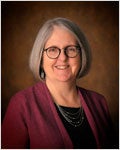“Dear Colleague” Call-to-Action Letter from AAFP, AAP, ACHA, ACOG, APhA, SAHM, and IAC Stresses Importance of Implementing Immunization Visit at 16 Years of Age
September 2019
| Technically Speaking | |
|
|
|
|
|
|
|
|
| TECHNICALLY SPEAKING | |
| “Dear Colleague” Call-to-Action Letter from AAFP, AAP, ACHA, ACOG, APhA, SAHM, and IAC Stresses Importance of Implementing Immunization Visit at 16 Years of Age | |
| Published September 2019 | |
| On August 1, the Immunization Action Coalition (IAC) and six professional societies joined forces to publish a “Dear Colleague” letter titled 16-Year-Old Patients: Make Sure They Receive Their Annual Well Visit and Vaccinations. IAC also issued a press release about this important call-to-action.
Highlights from the letter are reprinted below. The American Academy of Family Physicians (AAFP), American Academy of Pediatrics (AAP), American College Health Association (ACHA), American College of Obstetricians and Gynecologists (ACOG), American Pharmacists Association (APhA), Society for Adolescent Health and Medicine (SAHM), and Immunization Action Coalition (IAC) urge you and your fellow healthcare professionals to make sure that your patients who are 16 years of age receive the vaccines that are recommended for them in accordance with the Recommended Child and Adolescent Immunization Schedule for ages 18 years or younger, United States, 2019, approved by AAFP, AAP, ACOG, and CDC…. Immunization coverage rates for several adolescent vaccines are poor* The coverage rate for the second (booster) dose of quadrivalent meningococcal conjugate vaccine (MenACWY), which is recommended at age 16, was only 44% by the 18th birthday.
Vaccination at age 16 years has been highlighted on the U.S. Immunization Schedule Beginning in 2017, the official U.S. immunization schedule implemented a significant format change by creating a stand-alone column for age 16 years. Like the 4–6 years and 11–12 years columns, it is highlighted by a gray-shaded heading. The “16 year” age column was also separated out from the previous “16–18 year” age range to highlight the need for the recommended MenACWY 2nd dose at age 16 years. Along with MenACWY at age 16, influenza vaccine (seasonally) is recommended. In addition, vaccination with meningococcal serogroup B vaccine (MenB) is recommended for individual clinical decision making. Focusing on a 16-year-old visit also allows catch-up on vaccine doses for adolescents who may have fallen behind on vaccines such as HPV, Tdap, and others…. For more information, access the complete “Dear Colleague” letter online. *CDC coverage rate data reported in the joint letter appeared in MMWR on August 24, 2018. Updated coverage data was issued in MMWR on August 23, 2019. Related Links
|
